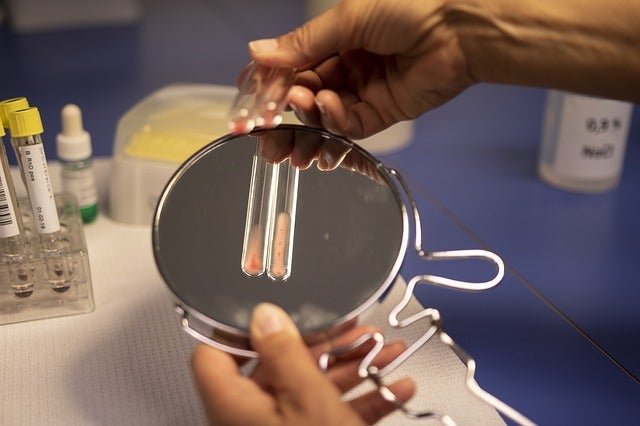
Scopio Labs has raised $50m in series C funding round for its end-to-end hardware and software platform for digitising, quantifying and analysing blood and other digital cell samples.
The series C funding round saw participation from investors such as OurCrowd, Aurum Ventures, Mizrahi-Tefahot Bank Invest and Ilex Medical, in addition to strategic investors operating in the field and existing investors.
Israel-based Scopio has developed a full end-to-end workflow for the digitisation and analysis of blood samples.
Scopio co-founder and CEO Itai Hayut said: “Deep Learning can analyse hundreds of times more healthcare data from a patient, supporting physician decisions and detecting conditions like cancers, anemias, and bleeding disorders, as well as infections and allergies. But for us it all begins with high-quality digital imaging data.”
Using computational photography, the company’s custom-designed X100 digital slide-scanning device generates ultra-high-resolution images of complete sample slides.
To gain ultra-sharp views of individual cells and get the full context of the sample, the full digitised slide is explored, scrolled and zoomed at 100X magnification.
Upon scanning, Scopio images are accessible from anywhere to help haematopathologists and clinicians to review and collaborate from any place.
The company has also developed AI-based decision-support solutions to analyse digital images of slides.
Its FDA-approved and CE-marked full-field peripheral blood smear (Full-Field PBS) application enables to detect, pre-classify and quantify blood cells.
Scopio is also involved in the development of more AI solutions, including for bone marrow aspirates (BMA).
Scopio co-founder and CEO Itai Hayut said: “Scopio’s full-field imaging and AI platform means tens of thousands of cells in a single sample can be examined, counted and analysed instantly and reviewed by a specialist regardless of location, leading to faster, easier and earlier detection and diagnosis of cancers and many other life-threatening medical conditions.”






